Related Research Articles
The Universal Postal Union is a specialized agency of the United Nations (UN) that coordinates postal policies among member nations and facilitates a uniform worldwide postal system. It comprises 192 member states and is headquartered in Bern, Switzerland.

The United States Postal Service (USPS), also known as the Post Office, U.S. Mail, or Postal Service, is an independent agency of the executive branch of the United States federal government responsible for providing postal service in the United States, its insular areas, and its associated states. It is one of the few government agencies explicitly authorized by the Constitution of the United States. As of 2023, the USPS has 525,469 career employees and 114,623 non-career employees.
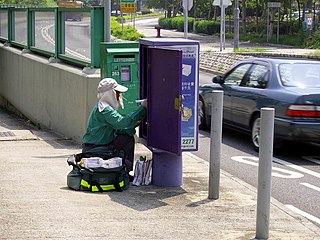
The mail or post is a system for physically transporting postcards, letters, and parcels. A postal service can be private or public, though many governments place restrictions on private systems. Since the mid-19th century, national postal systems have generally been established as a government monopoly, with a fee on the article prepaid. Proof of payment is usually in the form of an adhesive postage stamp, but a postage meter is also used for bulk mailing.

The United States Post Office Department was the predecessor of the United States Postal Service, established in 1792. From 1872 to 1971, it was officially in the form of a Cabinet department. It was headed by the postmaster general.
Canada Post Corporation, trading as Canada Post, is a Crown corporation that functions as the primary postal operator in Canada.
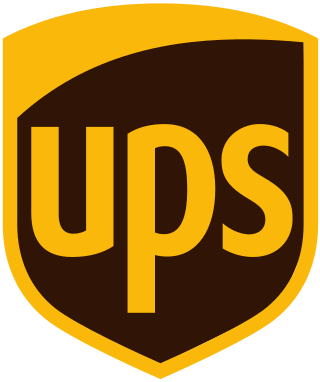
United Parcel Service, Inc. (UPS) is an American multinational shipping & receiving and supply chain management company founded in 1907. Originally known as the American Messenger Company specializing in telegraphs, UPS has expanded to become a Fortune 500 company and one of the world's largest shipping couriers. UPS today is primarily known for its ground shipping services as well as the UPS Store, a retail chain which assists UPS shipments and provides tools for small businesses. UPS offers air shipping on an overnight or two-day basis and delivers to post office boxes through UPS Mail Innovations and UPS SurePost, two services that pass on packages to the United States Postal Service for last-mile delivery.
The Private Express Statutes (PES) are a group of United States federal civil and criminal laws placing various restrictions on the carriage and delivery of letters by all organizations other than the United States Postal Service.

Postal service in the United States began with the delivery of stampless letters whose cost was borne by the receiving person, later encompassed pre-paid letters carried by private mail carriers and provisional post offices, and culminated in a system of universal prepayment that required all letters to bear nationally issued adhesive postage stamps.

Postal history is the study of postal systems and how they operate and, or, the study of the use of postage stamps and covers and associated postal artifacts illustrating historical episodes in the development of postal systems. The term is attributed to Robson Lowe, a professional philatelist, stamp dealer and stamp auctioneer, who made the first organised study of the subject in the 1930s and described philatelists as "students of science", but postal historians as "students of humanity". More precisely, philatelists describe postal history as the study of rates, routes, markings, and means.

An airmail stamp is a postage stamp intended to pay either an airmail fee that is charged in addition to the surface rate, or the full airmail rate, for an item of mail to be transported by air.
Mail fraud and wire fraud are terms used in the United States to describe the use of a physical or electronic mail system to defraud another, and are U.S. federal crimes. Jurisdiction is claimed by the federal government if the illegal activity crosses interstate or international borders.

John E. "Jack" Potter is the president and CEO of the Metropolitan Washington Airports Authority since July 18, 2011. He is the former United States Postmaster General and CEO of the United States Postal Service (USPS), having become the 72nd postmaster general on June 1, 2001. Potter is the second longest-serving postmaster general, following Gideon Granger.

The system for mail delivery in the United States has developed with the nation. Rates were based on the distance between sender and receiver in the nation's early years. In the middle of the 19th century, rates stabilized at one price regardless of distance. Rates were relatively unchanged until 1968 when the price was increased every few years by a small amount. Comparing the increases with a price index, the cost of a first-class stamp has been steady. The seal of the Post Office Department showed a man on a running horse, even as railroads and, later, motorized trucks and airplanes moved mail. In 1971, the Post Office became the United States Postal Service, with rates set by the Postal Regulatory Commission, with some oversight by Congress. Air mail became standard in 1975. In the 21st century, prices were segmented to match the sorting machinery used; non-standard letters required slightly higher postage.
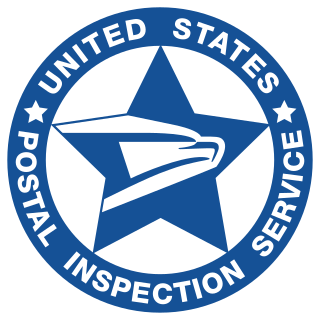
The United States Postal Inspection Service (USPIS), or the Postal Inspectors, is the federal law enforcement arm of the United States Postal Service. It supports and protects the U.S. Postal Service, its employees, infrastructure, and customers by enforcing the laws that defend the United States' mail system from illegal or dangerous use. Its jurisdiction covers any crimes that may adversely affect or fraudulently use the U.S. Mail, the postal system, or postal employees. With roots going back to the late 18th century, the USPIS is the oldest continuously operating federal law enforcement agency.
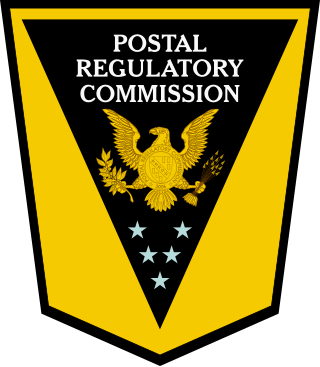
The United States Postal Regulatory Commission, formerly called the Postal Rate Commission, is an independent regulatory agency created by the Postal Reorganization Act of 1970. Like the Postal Service, it was defined in law as an independent establishment of the executive branch.

La Poste is a postal service company in France, operating in Metropolitan France, the five French overseas departments and regions and the overseas collectivity of Saint Pierre and Miquelon. Under bilateral agreements, La Poste also has responsibility for mail services in Monaco through La Poste Monaco and in Andorra alongside the Spanish company Correos.
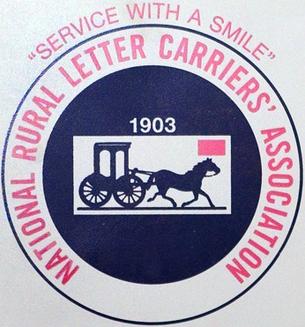
The National Rural Letter Carriers' Association (NRLCA) is an American labor union that represents the rural letter carriers of the United States Postal Service (USPS). The NRLCA negotiates all labor agreements for the rural carrier craft with the USPS, including salaries, and represents members of the rural carrier craft in the grievance procedure. The NRLCA's stated goal is to "improve the methods used by rural letter carriers, to benefit their conditions of labor with the United States Postal Service, and to promote a fraternal spirit among its members."
E-COM, short for Electronic Computer Originated Mail, was a hybrid mail process used from 1982 to 1985 by the U.S. Postal Service (USPS) to print electronically originated mail, and deliver it in envelopes to customers within two days of transmission.

The Postal Accountability and Enhancement Act (PAEA) is a United States federal statute enacted by the 109th United States Congress and signed into law by President George W. Bush on December 20, 2006.
The 2020 United States Postal Service crisis was a series of events that caused backlogs and delays in the delivery of mail by the United States Postal Service (USPS). The crisis stems primarily from changes implemented by Postmaster General Louis DeJoy shortly after taking office in June 2020. The delays have had substantial legal, political, economic, and health repercussions.
References
- Federal Times: Mail delivery practices unchanged after Supreme Court ruling, By Dan Davidson - March 16, 2006 Quotes Merritt as saying: "But if you are an enterprising attorney, you might want to choose someone easier to sue than the Postal Service."
- Federal Times - (Postal Rate Commission) Commission nominee opposed, By Stephen Losey, August 23, 2004 PostalWatch Executive Director Rick Merritt criticized the nomination of Dawn Tisdale (a former postmaster) to the United States Postal Rate Commission
- DMnews.com, April 7th, 2005: Consumer Groups Outline Wishes for Postal Reform Several groups, including PostalWatch, argue for greater financial transparency and cost control at the United States Postal Service.
- San Diego Union-Tribune, December 18, 2005: Late mail deliveries have become common problem countywide Includes an interview with Rick Merritt of PostalWatch.